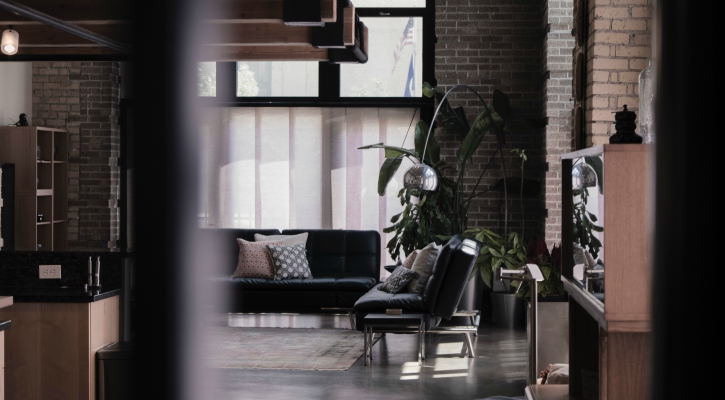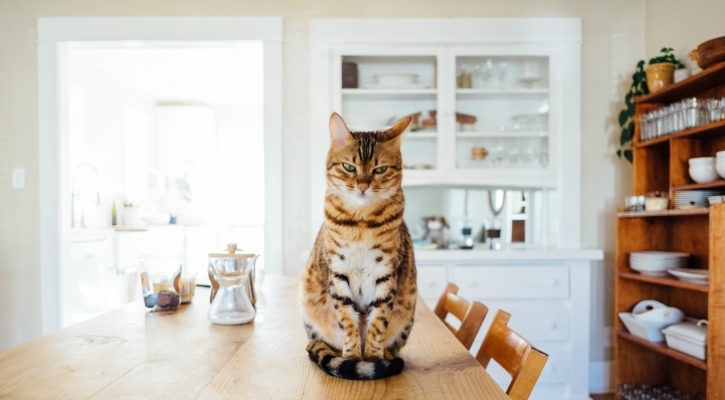Australian international schools in Singapore
Many Australians move to Singapore every year - in fact, as many as 20,000 Australian expats live in Singapore.¹ If you’re thinking of relocating to Singapore...

Singapore is notorious for its high cost of living, so be prepared to pay upfront for many expenses and services when settling in. Some are incurred as part of the moving-in process, like putting a security deposit for your new home, and shopping for new furniture and essential groceries.
Others are occasionally missed out, and might come as a surprise. For instance, you need to set aside a minimum deposit to open a personal bank account, spend tens of thousands to acquire the right to own a car, and buy your own health insurance if you’re on an employment pass.
Luckily for you, this article will show you how to save money through clever lifestyle and financial hacks.

Looking to move to a new place? Save on mover fees and rope in a few friends to help, preferably one with a car. Alternatively, hire a van and load it up to the brim for a one-time trip.
You can also save some money by cooking your own meals instead of ordering in, taking your own passport photo, and asking your office geek to help fix your PC when it stops working. For the avid beer connoisseur, you can even brew your own unique ales and hang out with Singapore’s growing homebrewing community.

Looking to sell old stuff that you no longer need? Skip the second hand dealer and do it yourself, with a whole range of online marketplaces catering to every kind of product. Check out Carro for cars, Hardwarezone for electronics, and Gumtree and Carousell for everything else.

The pace of life in Singapore is hectic and constantly on-the-go. It’s no surprise then that you might miss paying bills on time, incurring late credit card charges or renewing a subscription to a magazine you no longer want.
Make a list of bills to pay and subscriptions to renew or cancel. Synchronise it with an organiser app like Google Calendar, or mark it with colour coded stickers on your desk calendar. You can also use an Excel sheet or personal finance app to plan your budget, and stick to it religiously.

Even though ATMs are located everywhere in Singapore, you’ll be paying a poorer exchange rate when withdrawing from your overseas account. To save money, open a local bank account. This may take some time as you’ll need a residential address and have your employment or immigration documents ready to prove your residency in Singapore.
One way to speed up the process is by registering with an international bank that you maintain an account with. Banks with personal banking services include
You can also use borderless multi-currency account with Wise to send and hold money from your overseas account, and convert it at the mid-market rate, the same one you see on Google. Once your local bank account is ready, you can send the money over from the borderless account.

Renting a place to stay is usually a top priority for expats. However, you can only start house-hunting once your employment or residency formalities are completed. In the meantime, you’ll need to stay in a hotel or serviced apartment, which may cost around S$100 per day for a few weeks. To reduce your accommodation expenses, consider staying in the nearby Malaysian city of Johor Bahru, or bunk in at a hostel dormitory like Betel Box.
The initial cost to renting is also sizable. There’s an upfront payment for the first month’s rent, plus a month’s rent for the security deposit. If you engage an agent, the commission is up to one month’s rent as well. However, your landlord’s agent can sometimes be persuaded to do the paperwork for free, in the interest of closing the deal.

Unless you’re picky about using your landlord’s furniture, renting a furnished place helps reduce your initial expenses. Alternatively, you can find second hand furniture from dealers like Hock Siong, or in the popular Carousell marketplace.
Ikea is your best bet if you’re shopping for new furniture, and you can easily spend hours exploring the sprawling megastore in Tampines. FortyTwo is another an affordable furniture retailer that displays an extensive range of products on its website.

If you’re renting a whole place for yourself, you may be required to set up your own utilities account. Depending on the type of house, there’s an initial security deposit fee of between S$80 to S$800 for foreigners.
While this is refundable at the end of your tenancy, you won’t be able to spend it while living in Singapore, so make sure you’ve factored this into your initial settling-in cost.
Alternatively, see if you can reimburse the landlord for the monthly utilities bill. For instance, you could add this to your monthly rent, or negotiate for this arrangement instead of asking for new curtains and carpets.

Many services in Singapore insist on a charging customers through a prepaid account. You don’t have a choice sometimes, like when maintaining a minimum deposit on your personal savings accounts. However, you can skip the hefty upfront fees for some services, like:
For some of these services, you’re better off finding alternatives that charges a fee per session, or look for existing customers to refer you in for a discount.

Moving to Singapore with a pet might be a daunting task, as you’ll face a lot of paperwork and inspections. Generally, you’ll need to adhere to these guidelines:
To help you out, the AVS website has an online questionnaire that lists what you need to do, if you're bringing in a cat or dog. If it proves too costly, you could get your friends or family back home to take care of your pet first.
Moving to Singapore can be challenging if you’re not ready to deal with unexpected expenses and hidden costs. Be sure to add some buffer into your budget, and track your spending closely with a personal finance app like Wally.
You can also try some of our money-saving hacks to get around these expenses. In an expensive city like Singapore, you’ll want to make every cent count!
*Please see terms of use and product availability for your region or visit Wise fees and pricing for the most up to date pricing and fee information.
This publication is provided for general information purposes and does not constitute legal, tax or other professional advice from Wise Payments Limited or its subsidiaries and its affiliates, and it is not intended as a substitute for obtaining advice from a financial advisor or any other professional.
We make no representations, warranties or guarantees, whether expressed or implied, that the content in the publication is accurate, complete or up to date.

Many Australians move to Singapore every year - in fact, as many as 20,000 Australian expats live in Singapore.¹ If you’re thinking of relocating to Singapore...

Singapore is a small but prosperous country. More than 33,000 babies are born there each year, and more than 16 million tourists visit each year. If you’re a...

Boasting first-class medical facilities and expertise, Singapore regularly sees patients flying in from all over the world seeking specialist treatment....

Healthcare in Singapore may rank amongst the best in the world, but it comes at a premium price when compared to other countries in Southeast Asia. For...

Last year Wise made history by becoming the first non-bank to be licensed to send money in and out of Singapore. In celebration, we’ve gathered 52...

Singapore is a compact city with an extensive and reliable public transport network. As such, owning a car isn’t seen as a necessity for most residents. Car...